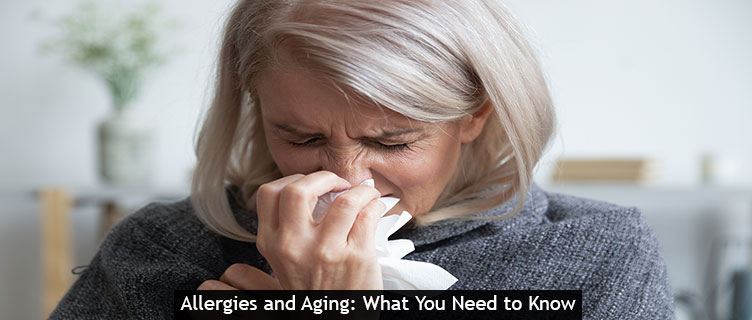The transition from winter to spring can be a beautiful time. More animals emerge, the grass turns green, buds form on trees, and flowers begin to bloom. But along with this beauty, also comes the annoyance of seasonal allergies. Tree pollen and mold come out in full force and can cause itchy or watery eyes, sore throat, sneezing, stuffy nose, aches and pains, and more. While this can be a nuisance for many adults, for seniors, it can become a greater health concern. Allergies can exacerbate respiratory or cardiovascular problems.
Being proactive when it comes to handling seasonal allergies can help decrease symptoms and provide relief to your senior.
Outdoor Safety
- Check the weather and monitor what the allergen levels are for the day. If they are too high, try to stay indoors.
- If you must go outside, make sure your senior is wearing a hat and sunglasses to help protect them from dust and pollen floating in the air.
- Keep the windows closed at home and in the car and use the air conditioning instead. This can help decrease the number of allergens circulating in the air.
- Try to avoid areas where grass is being mowed or there are lots of flowers or trees in bloom.
- Dry laundry in the dryer instead of hanging it on the clothes line where it can collect pollen and mold spores.
Cleaning Up
After spending time outside, make sure to clean up when coming back inside. This can help to reduce the spread of allergens around the home. While you can’t eliminate them completely, you can cut down on your loved one’s exposure.
- Wash your hands and face when coming inside to remove any pollen buildup. It is also a good idea to change clothes and toss what was worn outside into the washing machine.
- Set up an air purifier to help clean any particles out of the air. Don’t forget to change the air filter in the air conditioning as well.
- Regularly vacuum and wipe down common surfaces where dust and allergens may collect.
Fighting Allergies
If your senior is affected by seasonal allergies, it can be tempting to give them an over-the-counter medication to help reduce symptoms and discomfort. However, it is a good idea to check with their doctor first to make sure that it will not interfere with any medications they are already on, and that it won’t have undesirable side effects. Traditional antihistamines are not always the best choice for seniors, and there may be other options available.
If you or a loved one requires skilled nursing care but can safely transition into the assisted living setting, they can qualify for the Medi Cal assisted living waiver. Please contact Guidant Care Management at 844-494-6303 to determine if you qualify. We will work with you to ensure seniors receive the care they need to maintain as much independence as possible.

